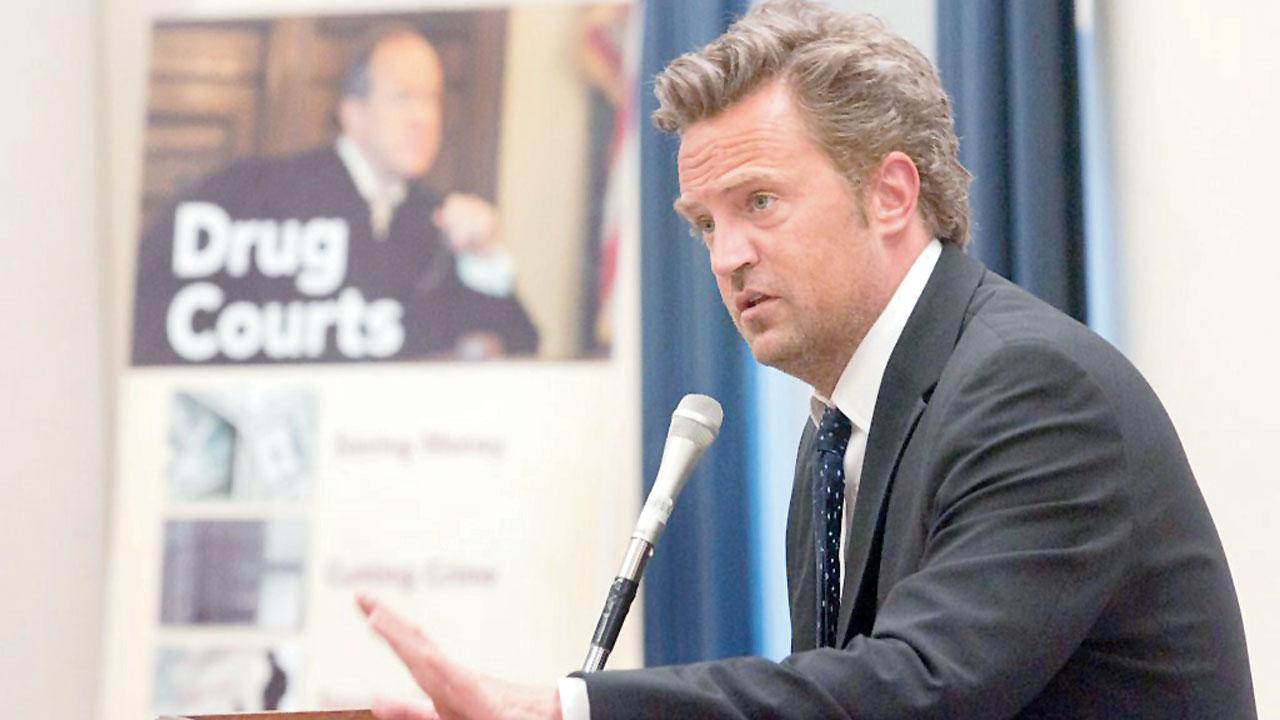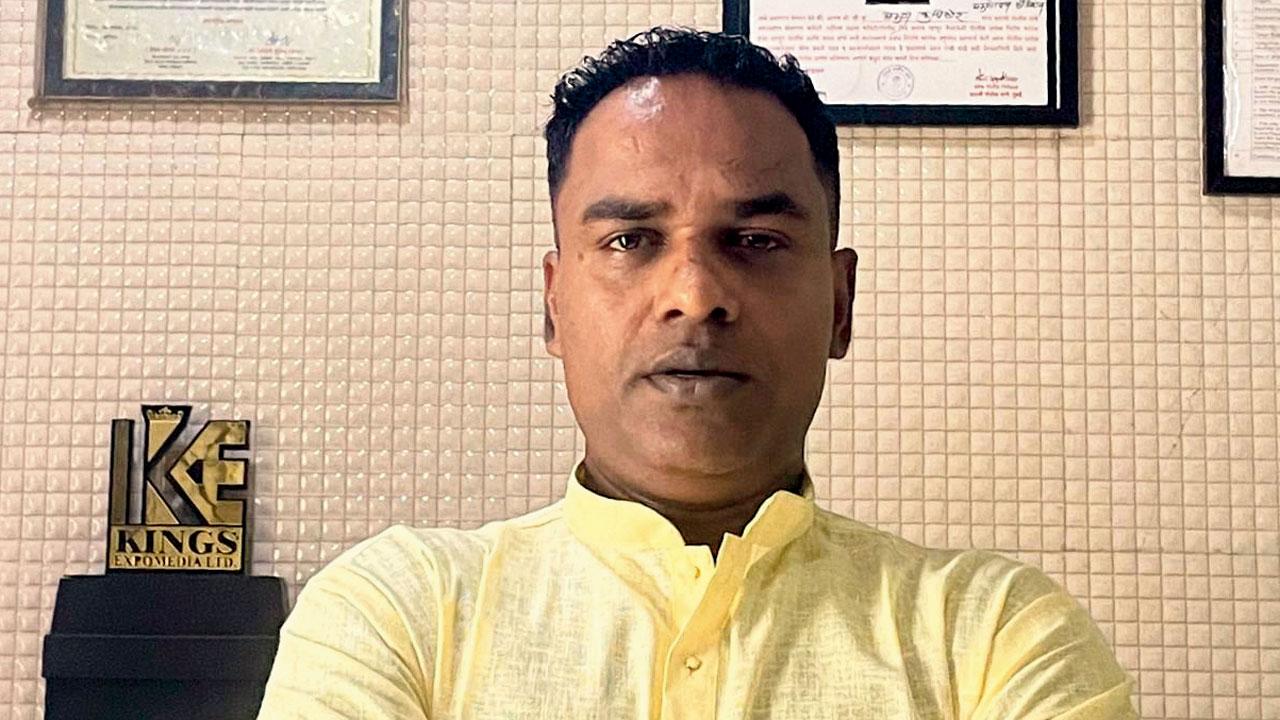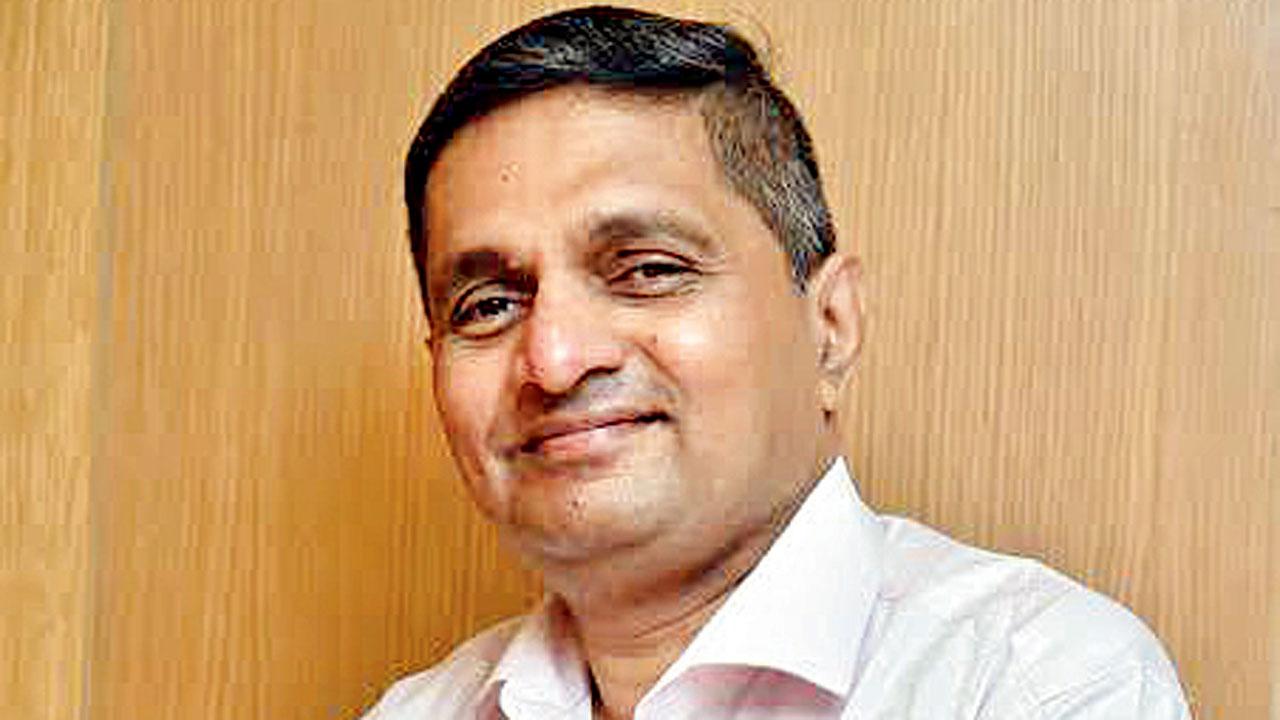The passing of actor Matthew Perry aka Chandler Bing of TV sitcom, F.R.I.E.N.D.S, has reignited the ill-effects of alcohol addiction, and the criticality to address it. Social activists, recovering alcoholics and a psychiatrist decode the multi-layered complexity of this condition

After being found drunk on set, Perry (second from right) was given an intervention by his F.R.I.E.N.D.S’ co-stars. Pic Courtesy/Instagram
Ernest Hemingway. Robin Williams. Vincent Van Gogh. The recently departed Matthew Perry is the latest name to join the list of prominent persons who battled substance addiction and alcoholism throughout their lifetime. Starting as a teenager, Perry battled alcoholism through his best years — leading to an intervention by his F.R.I.E.N.D.S co-stars — before finally turning crusader against the disease. In the course of his lifetime, Perry attended over 6,000 AA (Alcoholics Anonymous) meetings and sessions, evidence of the extent to which the condition had a grip on him.
ADVERTISEMENT

The actor wrote about addiction in his best-selling memoir, Friends, Lovers and The Big Terrible Thing. Pic Courtesy/Getty Images
According to the National Survey on the Extent and Pattern of Substance Abuse in India, conducted in 2019 by the National Drug Dependence Treatment Centre (NDDTC) and All India Institute of Medical Sciences (New Delhi), the country has 16 crore users of alcohol; 5.7 crore people are classified as problem users while 2.9 crore people are classified as dependent users.
Alcoholism in many forms
While it was identified as a disease by the American Medical Association in 1956, alcoholism remains elusive to popular understanding. This is due to its varied causes, says Dr Harish Shetty, psychiatrist and de-addiction expert, LH Hiranadani Hospital, Powai. “Depression, bipolar disorders, anxiety, family history or even poverty and some professions can drive people to drink,” he remarks.

Arun Kunchikor
This does not mean everyone who tastes alcohol is an addict. “The difference is craving or dependence. When someone suffers from withdrawal symptoms like tremors, it is a sign. The second sign is their high tolerance to alcohol. They drink more to get a minimum high,” he notes. Dr Shetty classifies them into problem-drinkers and alcoholics. The first kind, he says, are prone to impulsive binges and can cause accidents or road rages. The second type is steadier, but depends on alcohol for normal functionality.
Long-term solutions
While most alcoholics can recover at home with a supportive system around them, a few require medical attention. Arun Kunchikor, director of Dharavi-based NGO Arunodaya Foundation, seconds this. A recovered addict himself, Kunchikor has worked in the field for 10 years. “It is a lifelong disease. You are never truly cured. You are always fighting temptation,” he explains. He recommends a minimum rehab period of nine months.

Dr Harish Shetty
“The focus is to heal both the mind and body. The first 20 days are devoted to helping their body recover with a course of vitamins, regular health check-ups, and good healthy food. Alcoholics often sacrifice their nutrition for the drink,” he says. The remaining period is to help them self-analyse and work their way back to social acceptance. Dr Shetty adds, “Every alcoholic is different. The same yardstick of treatment cannot be applied to all. You must adopt a horses-for-courses approach with them.”
Acceptance is the key
Through it all, acceptance remains vital. It is important for friends and families to accept the victim despite their problems. The support of his wife and family was key to Kunchikor’s recovery, he admits. This can be difficult today, says Dr Shetty. “Personal contact has gone down. This is where groups like Alcoholics Anonymous step in. The first thing is to eschew stigma and speak about your problem openly,” he remarks.
As for slip-ups, they are inevitable. The psychiatrist says, “Anyone who has recovered has had several relapses. You cannot abuse or disown them for that. The trouble is that it is very difficult for loved ones and family to trust someone with alcohol dependency issues. This is where their support can be crucial.”
Yet, despite it all, there is always that one slip. As the late American actor, Robin Williams once said, “It lays in wait for the time when you think, ‘It’s fine now; I’m OK.” The battle is a long one. Perhaps, Perry knew it better than most.
Case study
I first started drinking at the age of 18. It made me feel invincible and helped to hide my anxiety. I was soon drawn to people with similar lifestyles. When people talked, I would dismiss it. At 28, I realised there was a problem. For instance, Perry was found out by his co-stars. He could hide it only for some time. Likewise, my clients began to notice it. My hands would tremble when I didn’t drink for a day. Signing a cheque became a task. I drank to function normally.

A social intervention, or a peer group of recovering alcoholics can help victims identify and understand their situation better
They say an alcoholic takes a drink, then the drink takes a drink, then the drink takes the alcoholic. There have been days when I have woken up without any memory of the previous night. AA helps because no one talks down to you. An alcoholic is judged everywhere else. People either dislike them or pity them.
At AA, when you hear members speak, it resonates with your own struggles. I have relapsed, but I somehow found my way. Sponsors that you identify with and can confide in at any time of the day or night, can help. When you are struggling, speaking with someone who has gone through the same phase helps tremendously. I’ve been sober for 30 years.
Ollie, 69, AA member, Bandra
Train your mind
>> Analyse the patterns of your alcoholism
>> Evenings are most challenging for alcoholics. Keep yourself occupied to avoid distractions
>> Avoid any routes that offer you access to drinks. Travel by roads or highways that don’t have bars on the route
>> Throughout the recovery period, travel or attend events with someone who can prevent a relapse
>> Join counselling activities in your office
>> Confide in someone you respect and trust — family, friends, doctor, spiritual gurus or a peer
Helplines to reach out
>> Alcoholics Anonymous India
At: Ghatkopar; Wadala, Andheri East, Thane and other locations.
Call: 9224737883 (Ghatkopar), 9821234577 (Thane)
>> Arunodaya Foundation
At: Rajiv Gandhi Nagar, Dharavi.
Call: 9136187427
>> New Life Group, St Peter’s Church
At: Ranwar, Bandra West.
Call: 9833120436
 Subscribe today by clicking the link and stay updated with the latest news!" Click here!
Subscribe today by clicking the link and stay updated with the latest news!" Click here!







